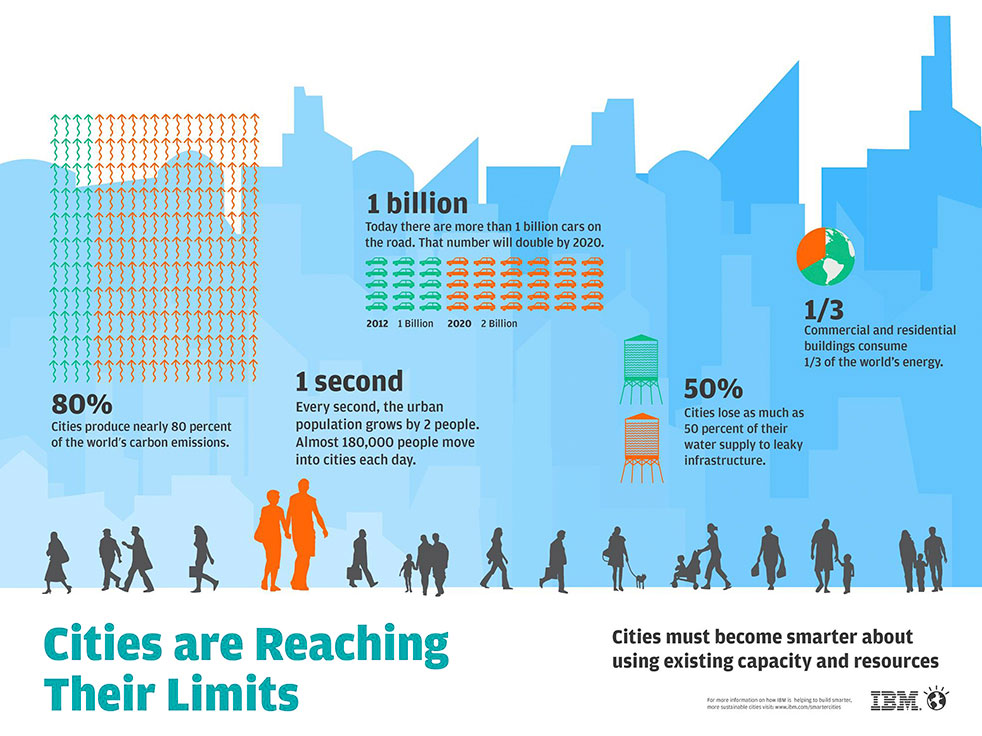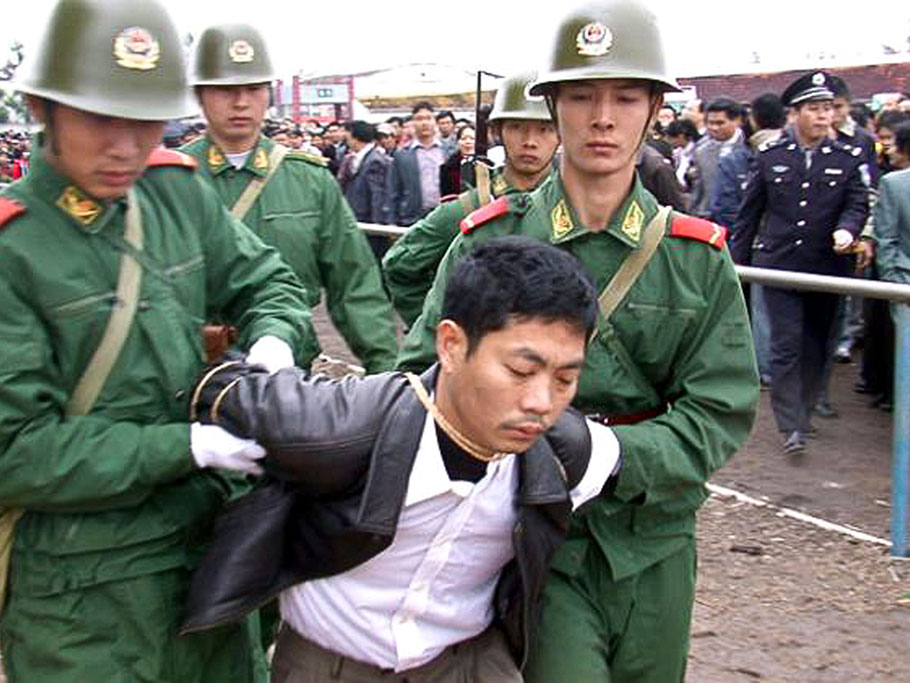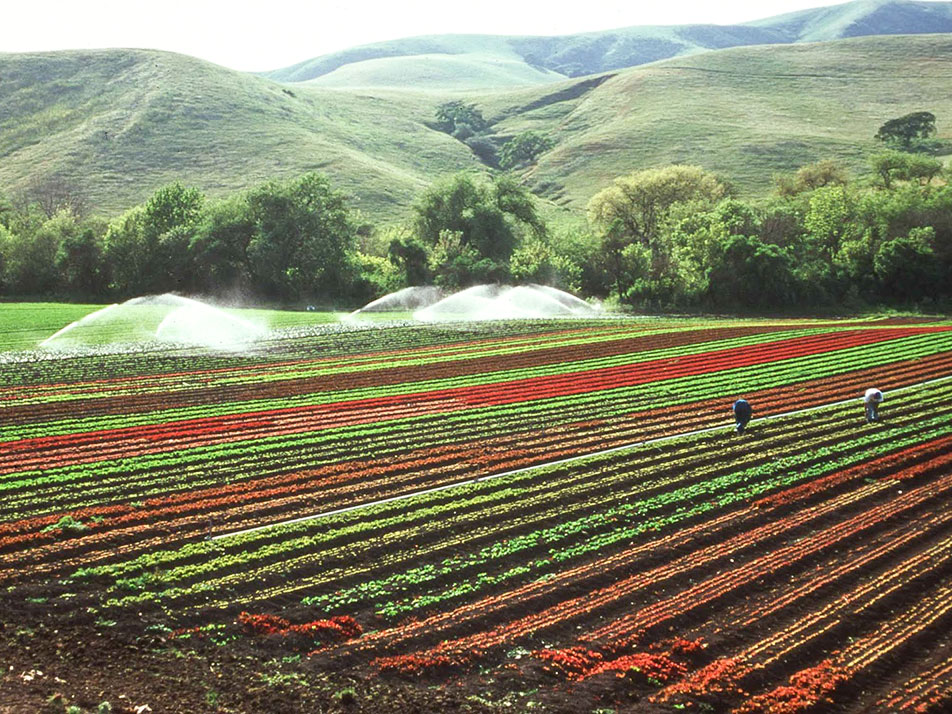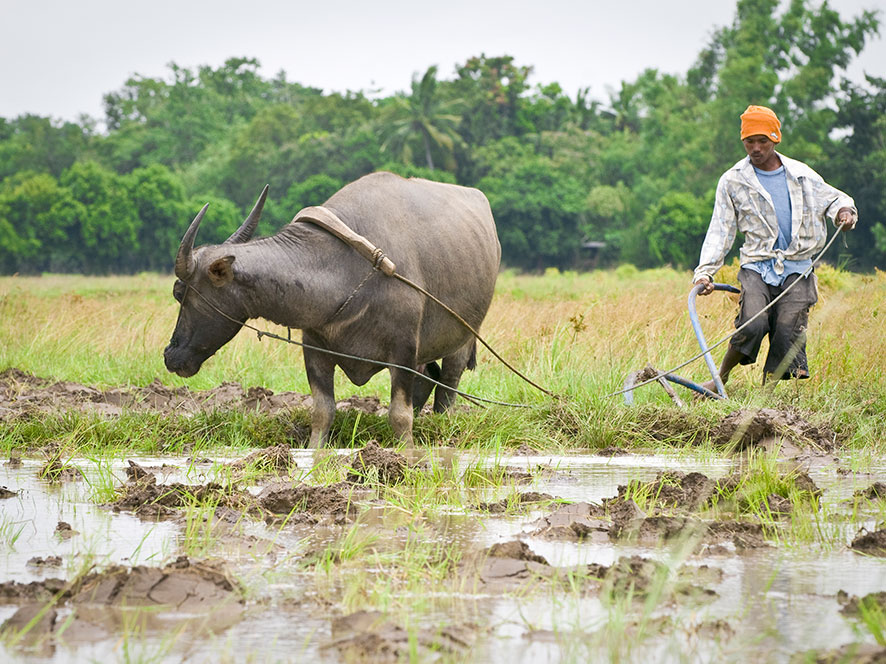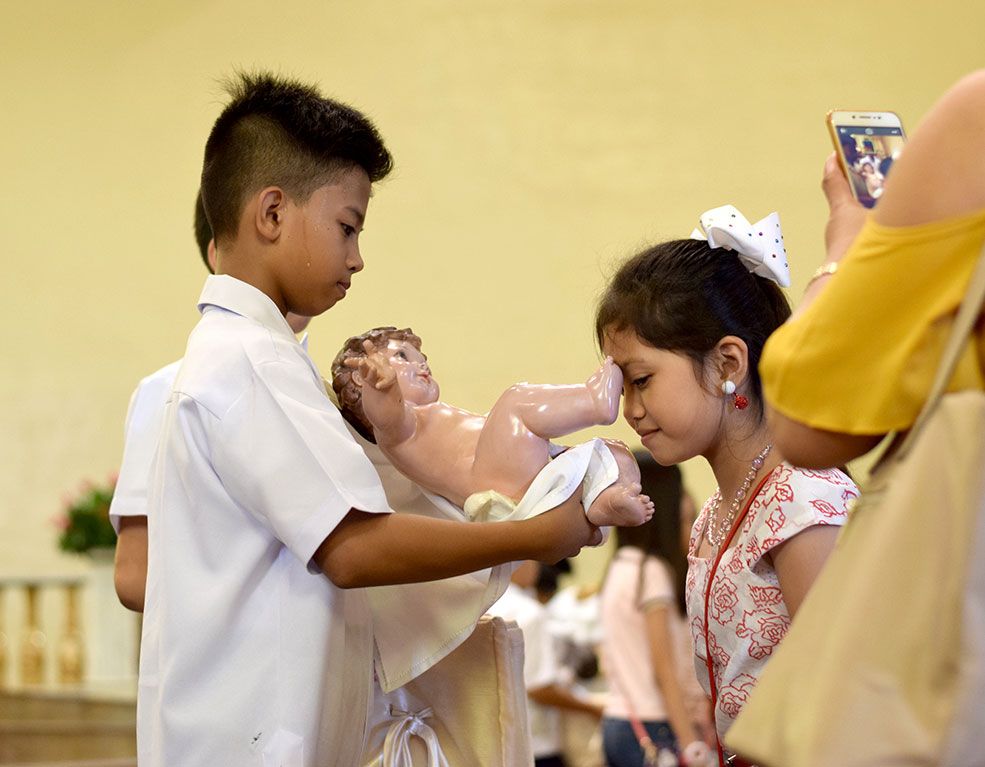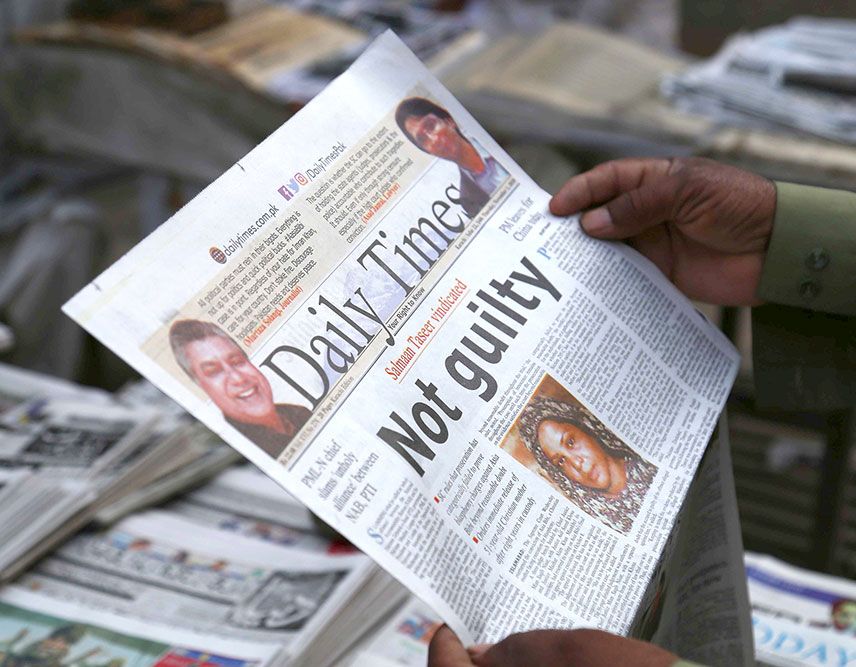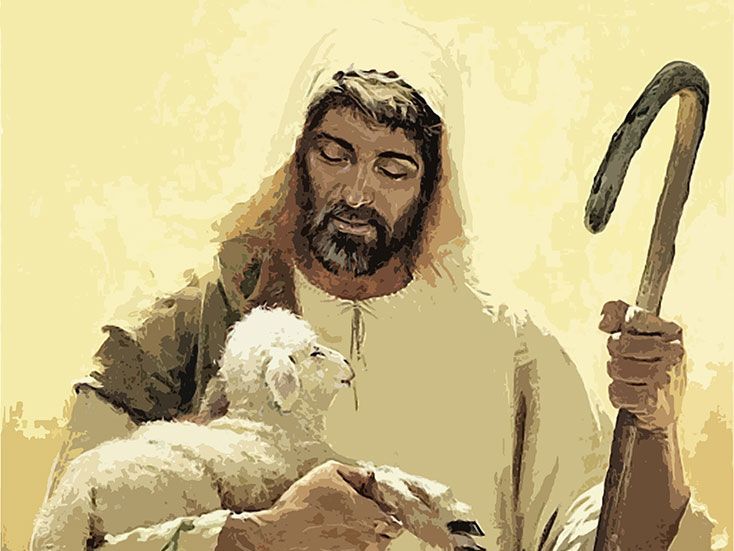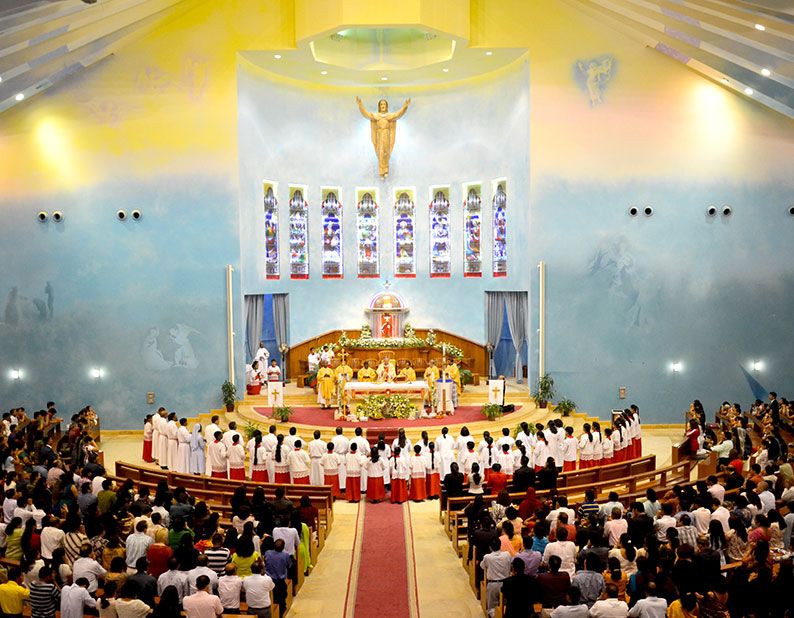Why is it that farmers have been resorting to marches, protests and demonstrations lately?
When the President said kayo ang boss ko (you are my boss), he was referring to the farmers, the urban poor, the peasants, the fishermen, and the poorest of the poor. They’re the ones that must be listened to but he’s not listening to them. And it’s ironic that, at the height of a full Cabinet meeting to discuss unemployment and poverty, farmers were being arrested in front of Malacañang for protesting because government is not listening to them. They are protesting because, after four years in Malacañang, the President had only met formally with the farmers once in June 2012, a stark contrast on the number of times he met with businessmen and foreign investors. These farmers are the moderate ones, not the ideological farmers. They are the ones who want it done the democratic way and yet they are not talked to or listened to despite their reasonable appeals for assistance.
What do you think is the reason why agrarian reform won’t succeed under the Aquino Administration?
The social reform agenda, especially agrarian reform, is not in the radar of the Aquino administration. That is, maybe, because the President, if you scratch him deeply, is (connected to) Hacienda Luisita. He grew up in Hacienda Luisita and that’s where he wants to retire. When it comes to social reform, his heart wasn’t in it and, like his mother (former President Corazon Aquino), only paid lip service.
The Comprehensive Agrarian Reform Law has been in effect for more than 25 years. What is the government missing in its implementation of agrarian reform program?
They missed the point. Agrarian Reform is a social reform legislation. The fact is, we have failed to really develop agriculture to make it efficient and productive because we attended to other things. In order to have good agricultural development that will be the basis for industrialization, you have to have a good agrarian reform accomplishment. Successful countries targeted agricultural development with a really good agrarian reform program. But, in the Philippines, agrarian reform program has not been attended to.
Has the government been remiss in its duties to the farmers as far as CARP is concerned?
The farmers have been short-changed. Support services have not come. Those who have been reached by support services say that agrarian reform made a big difference in the quality of their lives.
It’s difficult for them to undergo the transition from tenant-worker to owner-cultivator. That is why the government should step in, in a big way, to help them towards that transition but the government did not. Nobody can blame the farmers for their plight; it’s the government that’s supposed to really help them through this transition.
What is it that we have missed all these years of implementing CARP?
Social reform is changing the relationship between landowner and peasant, between employer and employee and between capitalist and worker. That is happening all over the world and we have not done it. We are still feudalistic.
Even if you give the land, you should change the relationship. We need a social restructuring for us to really have sustainable long-term development.
Why do the farmers want a new appointee at the helm of the Department of Agrarian Reform?
As far as the farmers are concerned, with Virgilio delos Reyes at the helm of DAR, CARP will fail for he is not the transformational leader needed for a social reform program. He is overcautious, technicality-oriented and is busy trying to protect himself against cases. How can the farmers trust the DAR under him when he has unfulfilled promises, and not taking care of the interest of the farmers?
What are the appeals of the farmers in view of the looming expiration of the land acquisition and distribution component of CARP?
Complete it, don’t just stick with the balance. We suggest the creation of an independent commission to investigate the claimed accomplishments of DAR and take a look at these transactions, which are circumventions of the law.
It is a basic principle in agrarian reform that you must not allow the landowner to negotiate directly with the farmers with respect to acquisition and distribution of land because the bargaining positions are not the same. The farmers are in an inferior and weaker position. The DAR should protect the interest of the farmers.
What do agrarian reform advocates want to tell members of Congress?
To enact a law and propose parts of the law that we want, such as the creation of an independent commission that will investigate circumventions of the law and put them back to CARP because if you allow landowners who circumvent and defied the law to keep their land, it will make a mockery of the agrarian reform program. They are enjoying and keeping their land and even bragging about the fact that they were able to circumvent the law. How can that be social reform when you allow that to happen?
We also want all unpaid amortizations to be condoned because the farmers are unable to pay because the government did not give them the support that was promised to them. How can it be their fault? They have lost many of their lands which is of no real cost to the government because 90% of the farmers are delinquent so what is there to lose? The opportunity cost of condoning is very low. Besides, earning profit or recouping investment should not be the goal of the government.
If CARP would end, is there still hope for the farmers to get land?
If we do end agrarian reform, let’s end it in a way that will energize the rural area. Put new life in the farming sector. Imagine what that can do to the morale of the poor farmers! It’s all they are asking Congress: to give it a chance and to see how serious we are in social change.
Will the advocacy to give land to the landless stop when CARP expires?
When I am asked what is the hope of our country, I say let us change politics at the top and develop leadership from below. We must develop leaders among the farmers and give them the chance to run this country because those of us in the ruling elite have failed.
We will start in the barangay. Support the farmers and peasants who want to run and let them win. If they get elected, they will soon rise among the ranks.
How does it feel lawyering for farmers?
It’s so frustrating even for outsiders like us that I wonder how the farmers really feel when they have outbursts or when they get arrested. They have been knocking on every door, obviously in the Palace, Congress and Supreme Court. But these are all under the control of feudalism. Farmers are short-changed in all of them: legislation, implementation and jurisprudence. The only hope of the farmers is for the people to be awakened to their plight, and to those in the government to be awakened.
As an agrarian reform advocate, what do you want to tell the government?
We made a very fatal assumption in the Constitutional Commission. We thought social change was possible because people, after the EDSA People Power Revolution, had changed. But that was not true. A lot of politicians came in, allied with businessmen, so they continued the old ways. We are still feudalistic. The poor never got an even break.
You will never know, the farmers might just lose their patience. If they run out of patience, we will have a big upheaval in this country and blood will be spilled if the poor is treated the same way that they have been treated since EDSA.
The poor can stand poverty but not injustice. Farmers just want justice. They don’t want charity. They don’t want crumbs; they want a place in the table.




